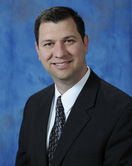The issue of tattoos falls into the same broad category as other issues relating to Christian freedom. In other words, often our questions reflect our desire to know what we can do and what can we not do as Christians. Is kissing allowed before marriage? Is dancing permitted? Should we watch this movie or read that book? You see, the list goes on and on. And quite honestly, sometimes the Bible allows for differences of opinion on some of these issues. So the question remains, what is the solution to this ethical and behavioral dilemma. I think the Bible is abundantly clear on that issue.
Read 1 Corinthians 10: 31-33 “So, whether you eat or drink, or whatever you do, do all to the glory of God. Give no offense to Jews or to Greeks or to the church of God, just as I try to please everyone in everything I do, not seeking my own advantage, but that of many, that they may be saved.” I think these verses provide us the answers we are seeking. We should never reduce Christianity to a list of rules and regulations, dos and don’ts. It is about a relationship with the savior Jesus Christ. He has radically and finally set us free from the bondage of sin and death. Therefore our desire is not to do the minimum in obedience to him, but to have a life that totally glorifies him and makes his name great.
So back to our illustration, should Christians get tattoos. Well each person considering this option must ask the simple question or whether or not this action will make God’s name great or not. Will it glorify God or not? Will it help the lost love and embrace the gospel or not? So whether we are talking about tattoos, dancing, movies, or whatever; the glory of God is the supreme factor in the life of the follower of Christ. This does not mean that these questions and issues are not important to talk about and discuss. I just mean to remind us that as children of God, we have a different worldview. Everything must be considered in light of the gospel of Jesus Christ and the glory of God.
In Christ,
Blain Craig

 RSS Feed
RSS Feed